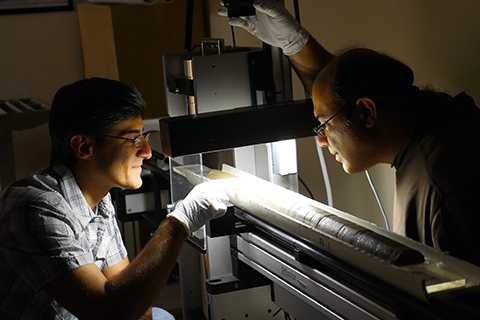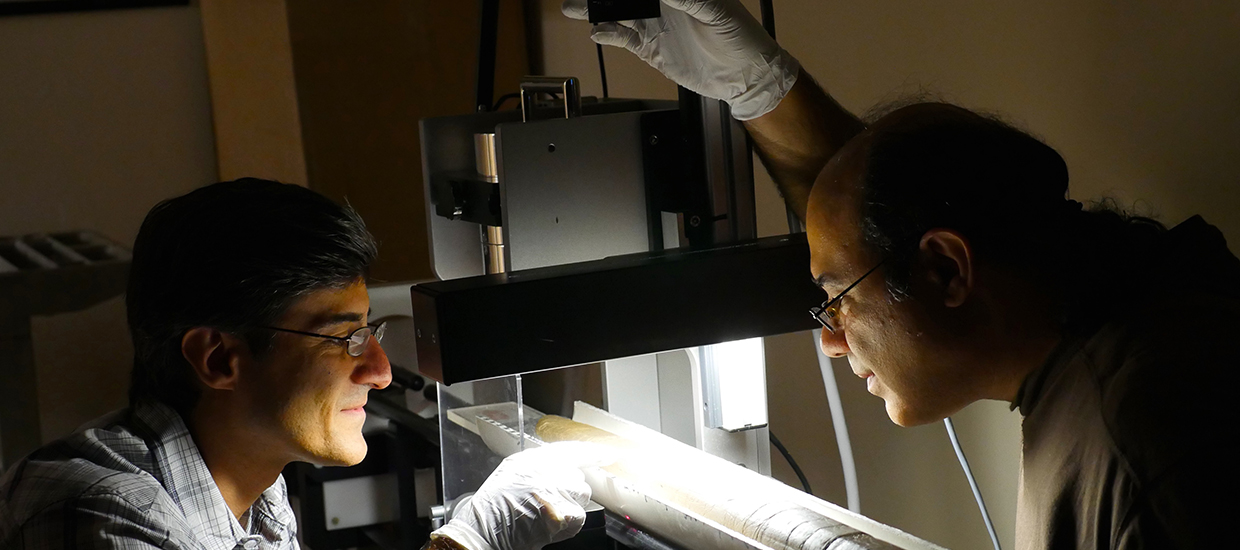The Thermo Scientific NEPTUNE Multi Collector (MC) ICP-MS) Isotope Laboratory at the UM Rosenstiel School provides a clean-room enclosure with several class-100 vertical and horizontal laminar flow hoods, two high-purity water systems, sub-boiling acid distillation units and two, class-100 trace metal workstations for low-blank sample processing and wet chemistry. The Thermo Scientific NEPTUNE Multi Collector (MC) ICP-MS offers high sensitivity and wide-ranging measurement capability. It is equipped with 9 Faraday detectors with one 1010Ω and one 1012Ω resistor to permit a dynamic range in Faraday detection. The instrument has 5 ion counters with one RPQ filter for study of isotopes with very low signal intensities, and permits a wide range of isotope systems to be analyzed at high precision. The instrument is equipped with many sample introduction systems that can be tailored for each application. The Neptune can analyze solutions via quartz spray chamber, PFA barrel spray chamber, desolvating nebuliser ESI Apex Q with 24 hours operation achieved using autosamplers ESI DX2. Solid samples can be analyzed by the New Wave Excimer 193 nm Laser Ablation (LA) system. The capability of the NEPTUNE to measure isotopic ratios across a wide range of elements allows applications in earth sciences, palaeoceanography, medical research and environmental studies. This instrument is routinely used for isotope dilution analysis of low level Fe, Mn, Cd, Zn and Cu in oceanic waters and the measurements of precise isotopic ratios of Li, B, Mg, Ca, Hf, Fe, Zn, Cd, Sr, Sc, Y, Rare Earth Elements in seawater and geological samples, and U-Th geochronology of carbonate rocks, including corals and speleothems.





